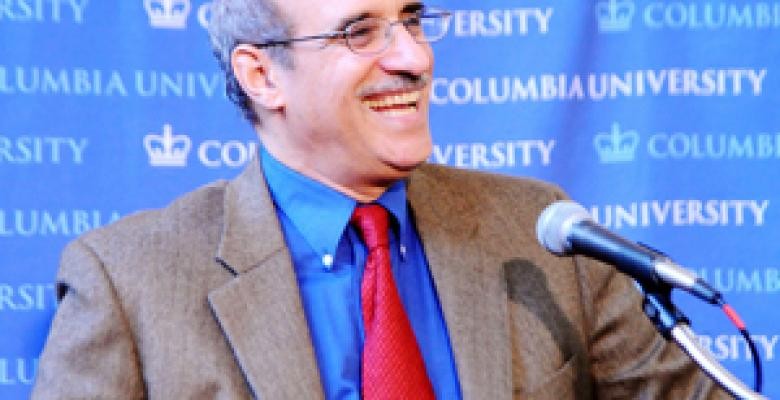Martin Chalfie, William R. Kenan, Jr. Professor of Biological Sciences, was awarded the first Golden Goose Award, honoring basic science research that initially seems obscure but leads to findings with significant health and economic benefits. The award was created by a coalition of science organizations, including the American Association for the Advancement of Science, and was presented Thursday on Capitol Hill. Chalfie received the award along with Osamu Shimomura and Roger Y. Tsien.
In 2008 Chalfie, Shimomura and Tsien won the Nobel Prize in chemistry for their work on green fluorescent protein (GFP). When injected in bacteria and illuminated with ultraviolet light, GFP acts as a sort of flashlight inside animals and plants that allows one to observe the cells, parts and processes in real time. The protein was first isolated in a jellyfish by Shimomura, and few researchers in the scientific community believed it could be expressed in other organisms, but Chalfie proved it could be expressed in two living organisms; it is now considered a universal genetic marker.
The Award refers to the children’s fable about the goose that could lay golden eggs and was a playful response to the “Golden Fleece Awards,” championed by the late Senator William Proxmire who gave the prize to government-funded projects he deemed a waste of taxpayer dollars. In this case, the nation’s science organizations are highlighting the groundbreaking discoveries and benefits that flow from the nation’s investment in basic scientific research.
“I’m honored to be given this award because it recognizes the importance of basic science research,” said Chalfie. “It is for research that on a naïve first glance might seem trivial but turns out to be far-reaching and have implications in a wide variety of areas. The award acknowledges that the development of any application requires a foundation of extensive basic research.”
Charles Townes, a Nobel laureate in physics, also won a Golden Goose for inventing laser technology, which stemmed from research in molecular and atomic spectroscopy while at Columbia in the 1950s. The team of Jon Weber, Eugene White, Rodney White and Della Roy won for research on coral that led to discoveries in bone graft technology.

